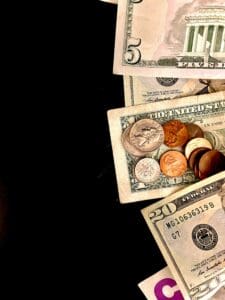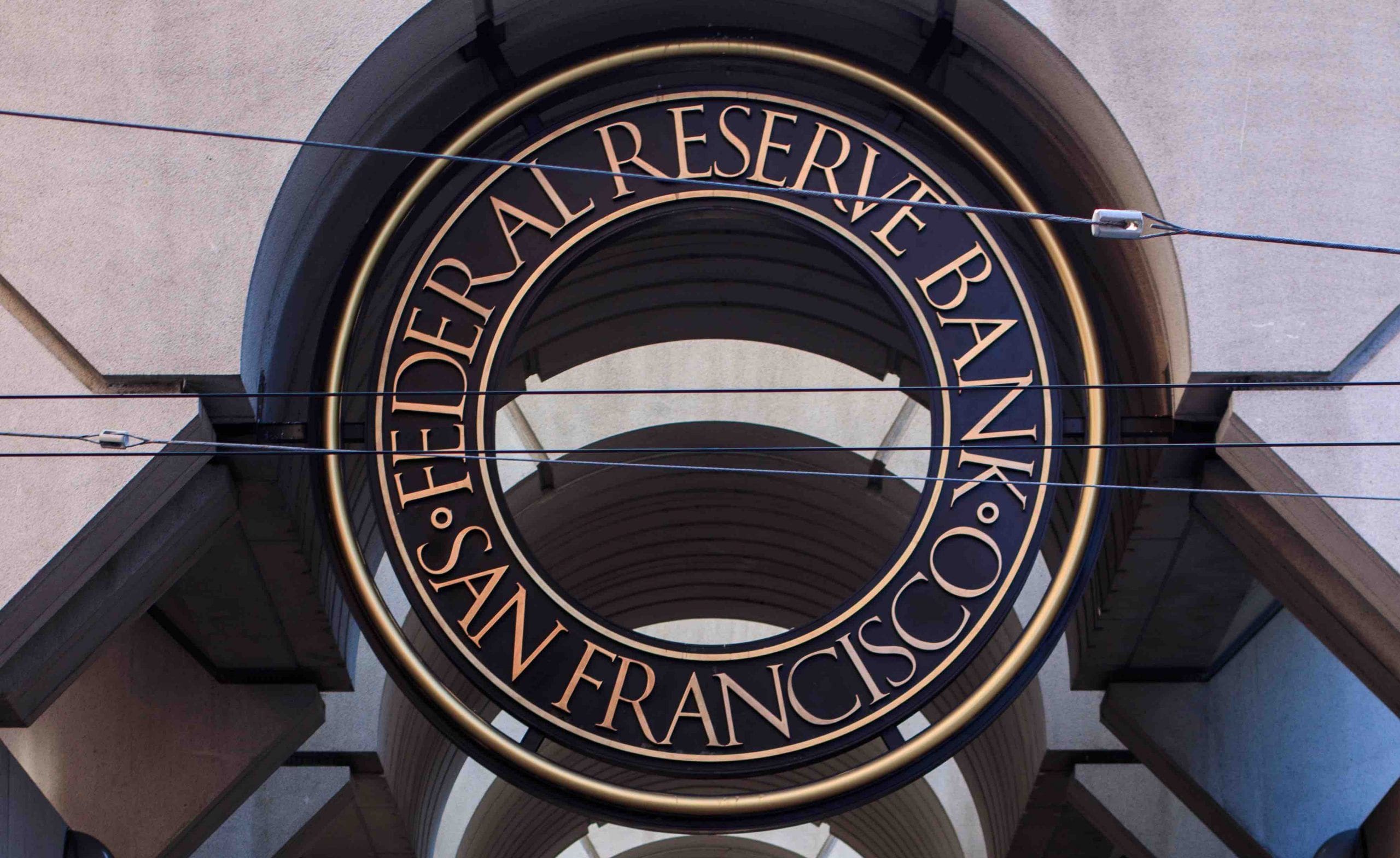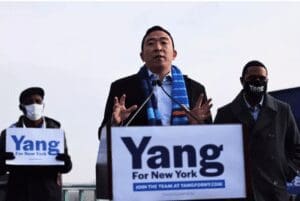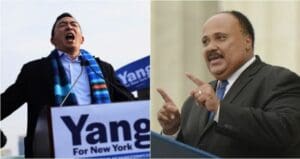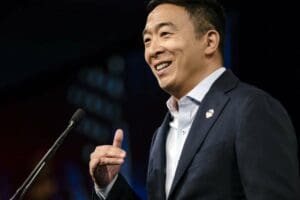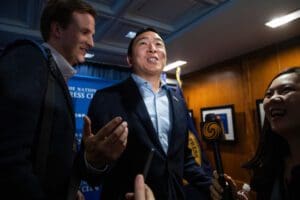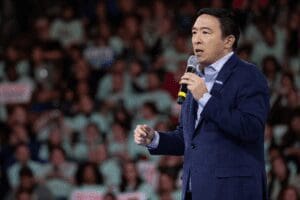Why Jerome Powell is Starting to Sound Like Andrew Yang
Andrew Yang’s run for the Democratic nomination for President was doomed the moment he got labeled as a single issue candidate. Candidates who get tagged as such are seen as being in the race simply to start a conversation, with no chance of actually winning. That was especially true for Yang, given that his issue was universal basic income, or UBI. There was more to his candidacy than that, of course, but that was what defined him in the media and, no matter how much sense UBI made for those who considered it rationally, it inspired a negative gut reaction in most Americans.
Things have changed since then, and, based on the words of Jerome Powell yesterday, even the Fed chairman is starting to look like an unlikely convert to the Yang Gang, at least on a temporary basis. Powell said that the Fed would continue with massive monetary stimulus to try to ward off the current economic problems, and urged Congress to add more fiscal stimulus as well. The economy had to be propped up and the American people, he indicated, needed to be given money by the government to cover basic necessities in order to stave off disaster and economic collapse.
That is a pretty remarkable position for a central banker to take and is really a sign of the times.
Since Andrew Yang pulled out of the primary race in February, events have made UBI look more wise than crazy in the eyes of many. The coronavirus shutdown brought into sharp relief something that has been known for some time: a huge number of Americans struggle to afford even the basic necessities in life.
You can say that that is their fault, or simply not care, but the fact is that when that number becomes too large, any slight disruption can quickly become a disaster. When the spread of Covid-19 prompted a shutdown of vast swathes of the economy, it was always going to be temporary. However, it was quickly clear that if the economy was to be saved from a disaster, a lot of people had to be given cash, and quickly.
It was no time for means testing or subtlety, no time to try to punish or shame the unemployed. So, 90% of taxpayers received a check for $1200 and every unemployed person was granted an additional $600 per week. Even though that $1200 was a one-off payment and the $600 was temporary, it all smells a lot like UBI in principle.
The basic concept of UBI is straightforward: The idea is that everyone receives a check from the government each month to cover or help with basic expenses. It is an idea that has been popular at various times and in various forms on both the left and the right of American politics. Those on the right see it as a (less costly) replacement for other social programs, while those on the left see it as a needed redistribution of wealth.
Whatever your politics, support for UBI implies a belief that the system is broken, that we live in a post-capitalist world, where the old ways no longer serve the people from an economic perspective. That may or may not be the case, but to hear that view and the basic idea of government being responsible for saving capital markets and therefore capitalism itself espoused by the head of the Fed is stunning.
Presumably, Powell feels that even though a decade of ultra-low rates and easy money have not produced raging inflation or any other problems so far, it is only a matter of time before they do, and the Fed’s policy has to change eventually. If that is the case, and the market and the economy still need propping up, then an extension of fiscal stimulus for an indefinite period could be needed.
Maybe Yang wasn’t so crazy after all.
The views and opinions expressed herein are the views and opinions of the author and do not necessarily reflect those of Nasdaq, Inc.



